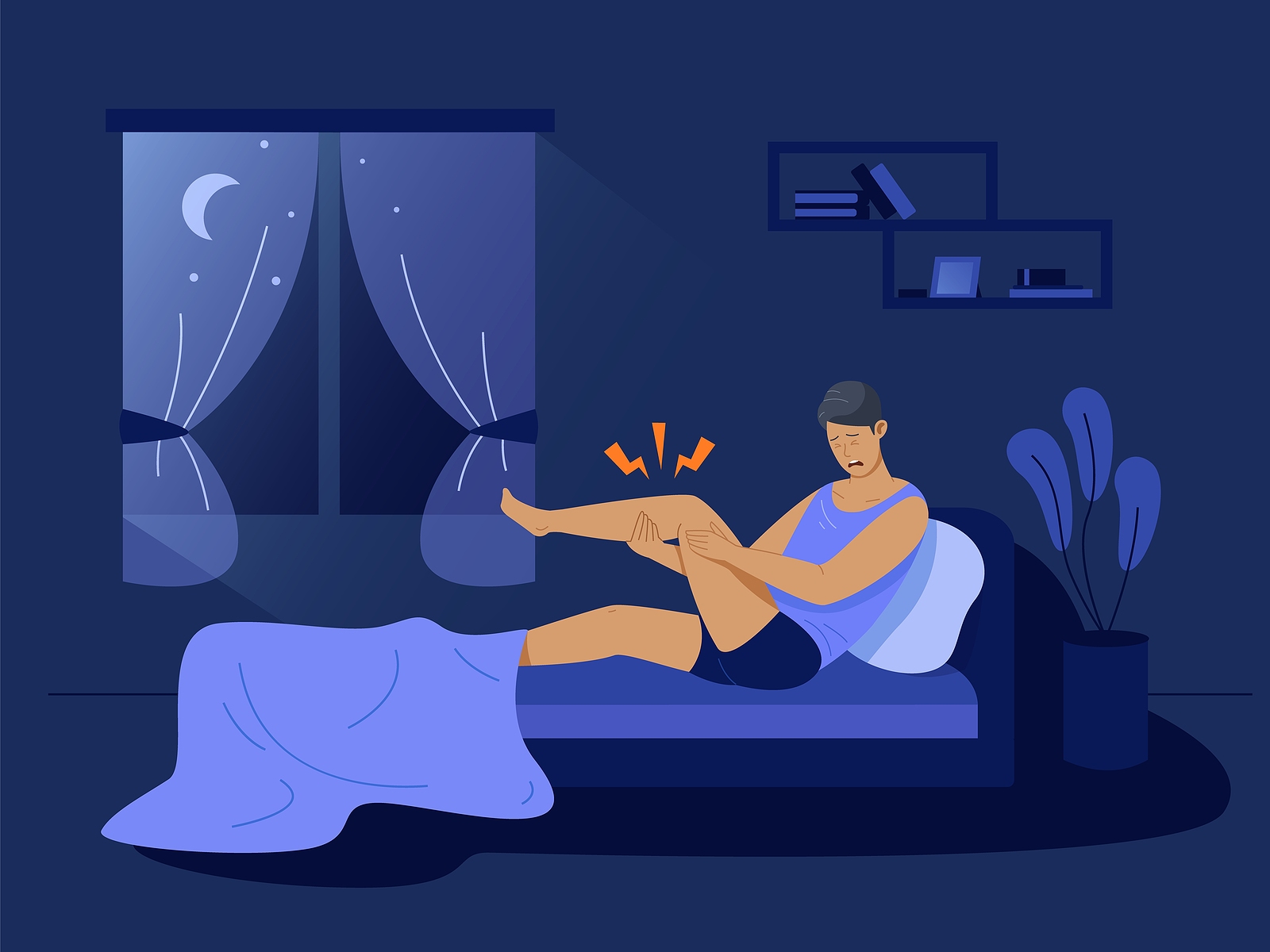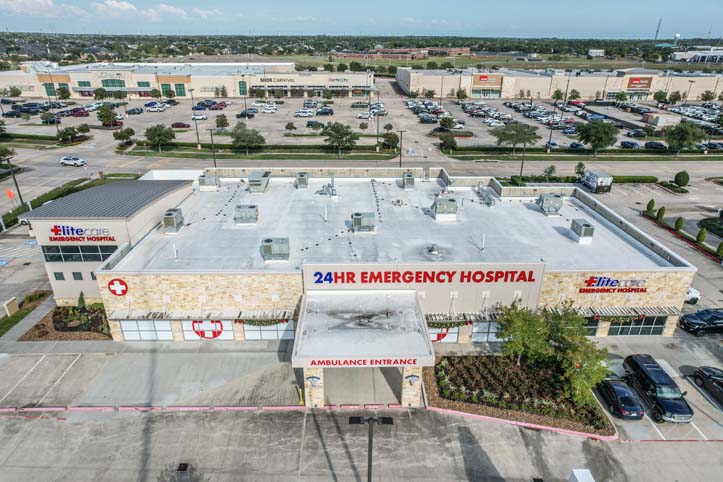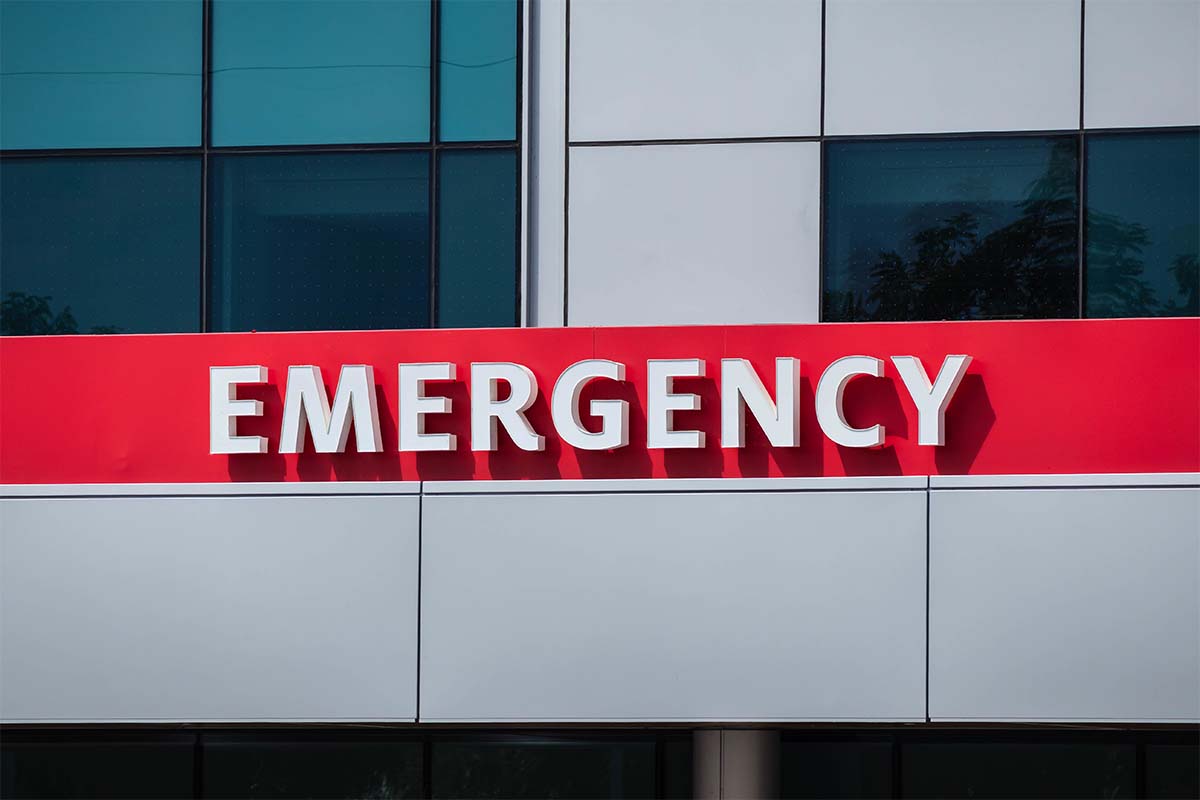
You are sleeping soundly when suddenly you’re awakened in the middle of the night by the searing pain of a leg cramp. The muscles of your calves become knotted and hard, and the cramping may also involve your feet, toes, or even your thighs.
Nocturnal leg cramps can happen to anyone of any age, but are more common as we grow older. These painful, involuntary muscle contractions, which can last from a few seconds to several minutes. Although they resemble the type of muscle cramps that follow vigorous exercise, these spasmodic cramps usually occur while the body is at rest.
Nocturnal leg cramps are not harmful—just painful. Although they can ruin a good night’s sleep, they typically don’t indicate a serious injury. And while you can’t prevent them entirely, there are steps you can take to ease the pain and minimize your chances of a recurrence.
CAUSES AND RISK FACTORS
While the specific cause of nocturnal muscle cramps is unknown, the problem is sometimes attributed to muscle fatigue, low levels of electrolytes, such as magnesium or potassium, or insufficient blood flow to the legs, sometimes from sleeping in a cramped or awkward position. (Medline Plus)
People taking certain prescribed medications, such as diuretics, might be more likely to have night leg cramps, although no direct connection has been proved.
Certain physical or medical conditions can increase the likelihood of developing leg cramps, including:
- Obesity
- Diabetes
- Low blood sugar
- Kidney disease
- Neurological disorders like Parkinson’s disease
- Alcohol abuse
- Some hormone disorders, such as hypothyroidism (Mayo Clinic)
Studies show you are more likely to have a leg cramp if you:
- Are 50 or older
- Are an athlete or avid exerciser
- Are pregnant
- Sit too long without moving
- Don’t drink enough water
- Stand for long periods (WebMd)
TREATMENT AND PREVENTION
When awakened by a leg cramp, try the following:
- Forcefully stretch your calf muscle by pulling your toes toward you and flexing your foot
- Massage the muscle using your hands or a foam roller to ease out the kinks.
- Get out of bed and walk around without footwear.
- Place your hands against a wall and lean forward so your calf muscles stretch.
- Apply heat, using an electric or microwaveable heating pad against the cramping muscle. You can also take a hot shower or bath with Epsom salts.
- Apply an ice pack to the cramping muscle for fifteen minutes on, fifteen off, until the pain subsides.
- If the pain persists, taking ibuprofen or acetaminophen can help.
The following activities may help minimize your chances of developing night leg cramps:
- Try getting some mild exercise late in the day, such as a short walk, a non-strenuous bike ride or a few leg exercises.
- Stretch your legs before and after exercising, and right before you go to sleep.
- Drink plenty of water and avoid alcohol and caffeine, especially near bedtime.
- Take your vitamins and medications as recommended or prescribed by your doctor.
- Refine your sleep position. Try sleeping with your toes up if you’re a back sleeper, or hanging over the end of the bed if you sleep on your stomach. Make sure tangled bedclothes don’t hamper the movement of your feet and legs.
WHEN TO SEE THE DOCTOR
Muscle cramps are usually harmless and subside after a few minutes. But if the cramps are severe or frequent, or if the problem persists after you’ve tried various methods for relief, a visit to your health care provider may be warranted. Schedule a checkup if your leg cramps:
- Are accompanied by swelling, redness, or warmth
- Are accompanied by muscle weakness, numbness or atrophy (Medline Plus)
- Occur after an injury or exposure to toxic chemical, such as lead (Mayo Clinic)
- Disrupt your ability to function during the day
Ask your doctor to review your medications to determine whether a side effect might be causing your nocturnal leg cramps. She may order tests to determine whether the cramps indicate a more serious condition, such as peripheral neuropathy or kidney failure. Your doctor may also recommend certain prescription medications or dietary supplements that may help relieve your discomfort, allowing you to get a better night’s sleep and improve your quality of life. (Cleveland Clinic)
WORK CITED
“Leg Cramps.” Cleveland Clinic. Last reviewed August 3, 2020. https://my.clevelandclinic.org/health/diseases/14170-leg-cramps
McMillen, M. “Nocturnal Leg Cramps.” WebMD. Last reviewed February 2020. https://www.webmd.com/sleep-disorders/leg-cramps
“Muscle Cramps.” Medline Plus. https://medlineplus.gov/musclecramps.html “Night Leg Cramps.” Mayo Clinic. Dec. 9, 2020. https://www.mayoclinic.org/symptoms/night-leg-cramps/basics/definition/SYM-20050813?p=1
















